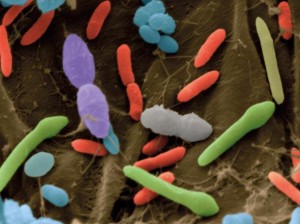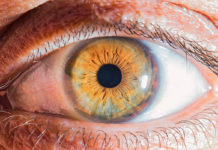 A new understanding of the essential role of gut microbes in the immune system may hold the key to dealing with some of the more significant health problems facing people in the world today, Oregon State University researchers say in a new analysis.
A new understanding of the essential role of gut microbes in the immune system may hold the key to dealing with some of the more significant health problems facing people in the world today, Oregon State University researchers say in a new analysis.
Problems ranging from autoimmune disease to clinical depression and simple obesity may in fact be linked to immune dysfunction that begins with a “failure to communicate” in the human gut, the scientists say. Health care of the future may include personalized diagnosis of an individual’s “microbiome” to determine what prebiotics or probiotics are needed to provide balance.
Appropriate sanitation such as clean water and sewers are good. But some erroneous lessons in health care may need to be unlearned — leaving behind the fear of dirt, the love of antimicrobial cleansers, and the outdated notion that an antibiotic is always a good idea. We live in a world of “germs” and many of them are good for us.
“Asked about their immune system, most people might think of white blood cells, lymph glands or vaccines,” said Dr. Natalia Shulzhenko, author of a new report in Clinical Reviews in Allergy and Immunology, and assistant professor and physician in the OSU Department of Biomedical Sciences. “They would be surprised that’s not where most of the action is. Our intestines contain more immune cells than the entire rest of our body.
“The human gut plays a huge role in immune function,” Shulzhenko said. “This is little appreciated by people who think its only role is digestion. The combined number of genes in the microbiota genome is 150 times larger than the person in which they reside. They do help us digest food, but they do a lot more than that.”
An emerging theory of disease, Shulzhenko said, is a disruption in the “crosstalk” between the microbes in the human gut and other cells involved in the immune system and metabolic processes.
“In a healthy person, these microbes in the gut stimulate the immune system as needed, and it in turn talks back,” Shulzhenko said. “There’s an increasing disruption of these microbes from modern lifestyle, diet, overuse of antibiotics and other issues. With that disruption, the conversation is breaking down.”
An explosion of research in the field of genomic sequencing is for the first time allowing researchers to understand some of this conversation and appreciate its significance, Shulzhenko said. The results are surprising, with links that lead to a range of diseases, including celiac disease and inflammatory bowel disease. Obesity may be related. And some studies have found relevance to depression, late-onset autism, allergies, asthma and cancer.
In the new review, researchers analyzed how microbe dysfunction can sometimes result in malabsorption and diarrhea, which affects tens of millions of children worldwide and is often not cured merely by better nutrition. In contrast, a high-fat diet may cause the gut microbes to quickly adapt to and prefer these foods, leading to increased lipid absorption and weight gain.
The chronic inflammation linked to most of the diseases that kill people in the developed world today — heart disease, cancer, diabetes — may begin with dysfunctional gut microbiota.
Understanding these processes is a first step to addressing them, Shulzhenko said. Once researchers have a better idea of what constitutes healthy microbiota in the gut, they may be able to personalize therapies to restore that balance. It should also be possible to identify and use new types of probiotics to mitigate the impact of antibiotics, when such drugs are necessary and must be used.
Such approaches are “an exciting target for therapeutic interventions” to treat health problems in the future, the researchers concluded.
Source: Oregon State University. “Gut microbes closely linked to proper immune function, other health issues.” ScienceDaily, 16 Sep. 2013. Web. 26 Nov. 2013.














